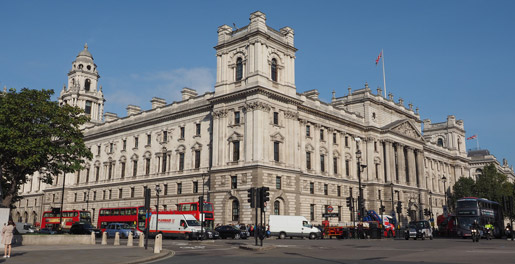Blog
Is Scrapping the Corporation Tax a Good Idea?

The Adam Smith Institute, a free market libertarian think tank based out of London, suggested this week that the UK should altogether eliminate its corporation tax following the country’s imminent departure from the Europe Union.
In a paper released on July 20th, Dr. Madsen Pirie, Founder and President of the Institute, called for the abolishment of the UK’s corporate tax in an effort to “reboot Britain” and jumpstart the country’s shaky economy.
In the paper, Pirie posits that this is the perfect time to carry out a series of reforms that will ultimately help the UK move forward and “make the UK tax sys-tem more rational and certainly more simple.”
Citing that the UK’s tax system “lacks coherence,” Pirie suggests that the first order of the day should be to gradually reduce corporate tax from 20 to 12.5 to 6.25 and finally to 0% during a specified period of time.
Pirie’s logic behind the elimination of the corporate tax follows: “There is a false belief that this is paid by companies, but it is not. It is paid by the employees of companies, by their customers, and by their shareholders. Without Corporation tax, businesses would have more money to distribute to shareholders in dividends, to increase the pay of their employees, and to keep prices keen for their customers. Although the government would forego the amount it receives in Corporation tax, it would receive more income tax from the higher dividends to share- holders and from the increased wages to employees, and more VAT from the extra spending power the lower prices put into the pockets on customers.”

Will New Chancellor Follow Through with Corporate Tax Cuts?
Philip Hammond, the newly appointed Chancellor, however, hasn’t yet established whether or not he will follow through with George Osborne’s proposal to lower the corporate tax rate to 15 percent.
Several MPs and academics, though, have come out to urge Hammond to leave the country’s corporate tax at its current level of 20 percent.
In an opinion piece for PoliticsHome, Treasury Select Committee and Labour MP Rachel Reeves referred to Osborne’s plan as “misguided and unjust,” writing, “I would urge the new Chancellor to set out a more responsible set of financial priorities than his predecessor by immediately abandoning any plans to cut corporation tax.”
Reeves added, “The new Chancellor needs to focus far less on the Tories’ flawed ideology of cutting taxes for big businesses and think about how he can protect people’s jobs and livelihoods.”
Along similar lines in a blog post for the London School of Economics (LSE), Judith Knott, former Director of Large Business and Director of Corporation Tax at HMRC, argues that the UK’s corporate tax of 20 percent should be left untouched.
She writes, “While rate cuts can stimulate investment, it’s not clear that they are always the best way of doing so, as opposed to e.g. increasing allowances for capital investment,” adding that “the timing would need to be right: promises of rate cuts by 2020 are unlikely to shore up investment through the uncertainty of the Brexit negotiations.”
Furthermore, Knott claims that such a cut “would have a significant impact on the wider tax system, particularly for small businesses.”
She says dropping the tax rate to 15 percent and under “would exacerbate the so-called “tax-motivated incorporation” problem — that is, the distortion that encourages smaller business owners to set themselves up as companies and take their remuneration as dividends rather than salary.”
Finally, Knott argues that although revenues lost as a result of a lower corporate tax rate could be made up in the shape of higher value-added taxes, “funding a CT cut with a rise in VAT, signalling yet more austerity for consumers in the uncertain post-Brexit economy, looks politically explosive.”
Her Majesty Revenue & Customs (HMRC) has recently estimated that lowering the corporate tax rate from 17 (as expected in 2020) to 15 percent would reduce the country’s coffers by about 4 billion pounds a year.